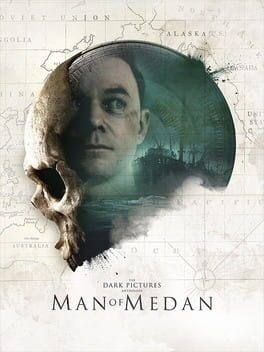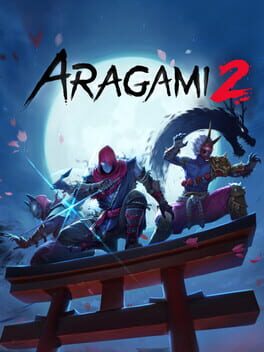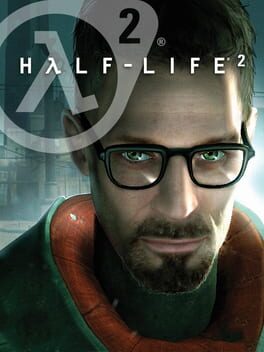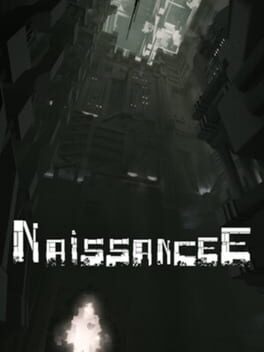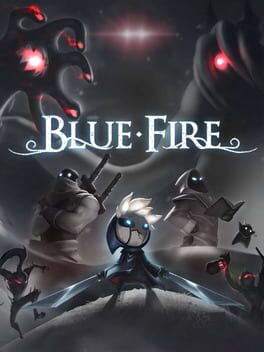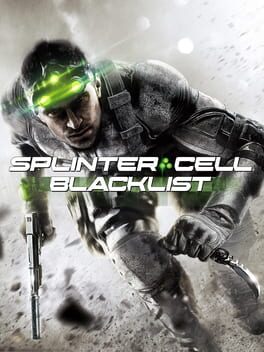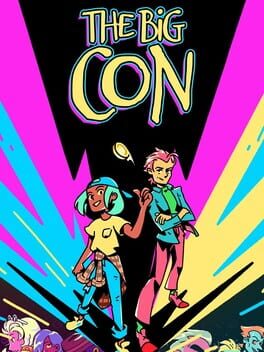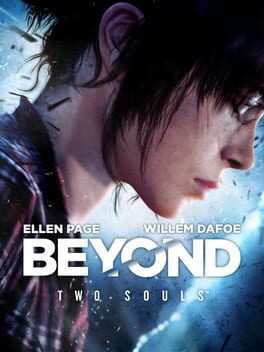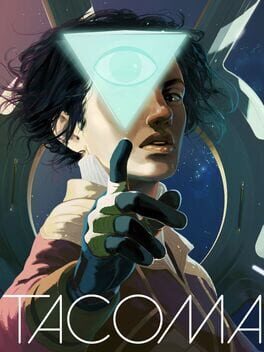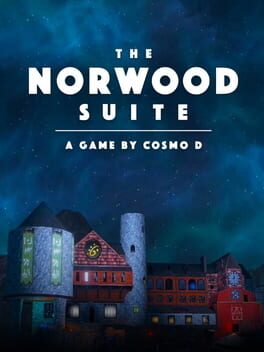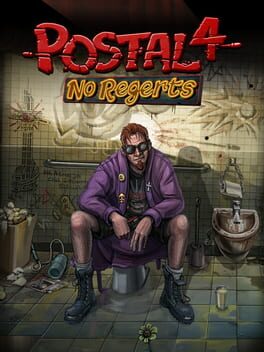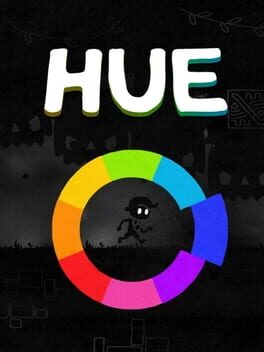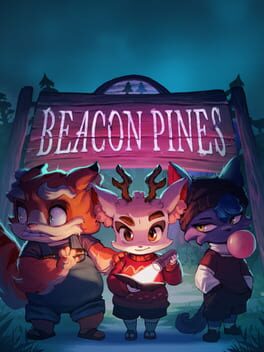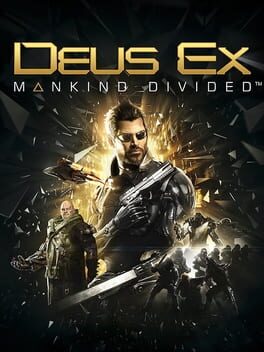TidB
A game about choices that doesn't understand their role in storytelling. A horror game that doesn't understand horror. A game that concludes a decent setup with an embarrassing ending.
The first half is bursting with jump scares, even the extremely silly ones where a deformed face screams at you directly, giving this high-budget game the feel of a free Unity horror game. We get some actual breathing room towards the end but at the same time the jump scares that still do occur destroy any leftover atmosphere. This is worsened by a dumbed-down narrative. The Storyteller is a childish addition, the archetype of a mysterious meta person who's above the narrative. His sole contributions are nebulous predictions and a patronizing pat on the back if you managed to save people - and maybe he reprimands you if someone died. I wouldn't know, I didn't bother to check any more endings.
And y'know, I got to my first ending and it sucked ass - a completely unexplained conflict suddenly emerged for that shitty 'ooooOOOoooo the evil thing is still out there' moment. I redid a dumb decision I made towards the end and saved everyone, but that ending is almost exactly the same and it still sucked ass. I even watched an ending compilation and they all sucked ass. If I let someone escape early and then save everyone else later on, why does that first someone come back to the spooky ghost ship alone and they don't even try to call each other before, while in the other endings he returns obviously not alone?
As often present in horror media, there's an ideology of nihilism where mostly bad things simply happen and you're forced to live with them. This cheap trick has little bearing because death can be thrown in at any time. Even worse, the game later tries and fails to rationalize the spooky happenings instead of staying with a purely supernatural explanation. As seen before in The Suicide of Rachel Foster, rationalization does not make horror more grounded, believable or impactful.
So what bearing do your choices have in the end? In a good narrative or even your local DnD campaign, the entire world changes with you. Here, there are binary choices: you survive or you don't. There is no moral, there is no larger point, character arcs begin and get thrown away. There's only a bunch of cutscenes with no emotional release. The gamification of the narrative can be seen by people commenting on how shocked they were when an early innocuous decision has grave consequences later on. One person even said that the storyteller is their favorite character. He's not a character, he's the writer's desperate attempt to give a nihilistic narrative an even more nihilistic twist.
Games like this are built on the belief that there's always a choice, but this one doesn't have an answer to any of them. As The Armed sang not so long ago:
Expectations, secret rattlesnakes
It’s never really how it happens
It’s never really how it happens
The first half is bursting with jump scares, even the extremely silly ones where a deformed face screams at you directly, giving this high-budget game the feel of a free Unity horror game. We get some actual breathing room towards the end but at the same time the jump scares that still do occur destroy any leftover atmosphere. This is worsened by a dumbed-down narrative. The Storyteller is a childish addition, the archetype of a mysterious meta person who's above the narrative. His sole contributions are nebulous predictions and a patronizing pat on the back if you managed to save people - and maybe he reprimands you if someone died. I wouldn't know, I didn't bother to check any more endings.
And y'know, I got to my first ending and it sucked ass - a completely unexplained conflict suddenly emerged for that shitty 'ooooOOOoooo the evil thing is still out there' moment. I redid a dumb decision I made towards the end and saved everyone, but that ending is almost exactly the same and it still sucked ass. I even watched an ending compilation and they all sucked ass. If I let someone escape early and then save everyone else later on, why does that first someone come back to the spooky ghost ship alone and they don't even try to call each other before, while in the other endings he returns obviously not alone?
As often present in horror media, there's an ideology of nihilism where mostly bad things simply happen and you're forced to live with them. This cheap trick has little bearing because death can be thrown in at any time. Even worse, the game later tries and fails to rationalize the spooky happenings instead of staying with a purely supernatural explanation. As seen before in The Suicide of Rachel Foster, rationalization does not make horror more grounded, believable or impactful.
So what bearing do your choices have in the end? In a good narrative or even your local DnD campaign, the entire world changes with you. Here, there are binary choices: you survive or you don't. There is no moral, there is no larger point, character arcs begin and get thrown away. There's only a bunch of cutscenes with no emotional release. The gamification of the narrative can be seen by people commenting on how shocked they were when an early innocuous decision has grave consequences later on. One person even said that the storyteller is their favorite character. He's not a character, he's the writer's desperate attempt to give a nihilistic narrative an even more nihilistic twist.
Games like this are built on the belief that there's always a choice, but this one doesn't have an answer to any of them. As The Armed sang not so long ago:
Expectations, secret rattlesnakes
It’s never really how it happens
It’s never really how it happens
2019
I cannot possibly write something really new on this, so I'll just say why I appreciate it. First of all, it deals with concrete political themes which indie games, albeit trying to be philosophical, don't get to - no need to go for 'what makes us human' and the like questions, but straight-up union, police, racism, cultural heritage, faction topics.
Secondly, the depiction of internal dialogue as different subsystems is really inspiring. It feels so good for a voiceless protagonist to have a voice and a thought process. I'm still not quite sure about the D&D-like random checks - I am aware that a fail really just means 'the story continues, but in a different way' - but it has somewhat won me over because it's reasonable and it's fun to see how everything turns out.
Thirdly, it's the best approach to grimdark stories yet - not that it's trying to be grimdark, but it shows that you can have humanity and good things at all points, and not a constant flow of terrible actions and everything's shitty and every person you meet is really terrible (and probably addicted to drugs). >observer_ could've been better if it were more like this.
Generally, I liked its commitment to the world reminiscent of sci-fi books drowning you in technobabble though at some point I just couldn't store any more information on all the names that sometimes get spit out rapidly, similar to the writing style which sometimes just went over my poor English-as-a-second-language brain. One interesting thing I find noteworthy though: We again have a situation where the environment is described as a city, but during gameplay, it all feels like a town, everyone knowing each other and a good sense of stability, similar to what we've discovered in Whispers of a Machine. Obviously, a hectic space with lots of strangers popping in and out, a grand scale and lots of non-leads wouldn't make much sense for this game, but I do wonder if and how we could get a feel of a city in narrative games.
Secondly, the depiction of internal dialogue as different subsystems is really inspiring. It feels so good for a voiceless protagonist to have a voice and a thought process. I'm still not quite sure about the D&D-like random checks - I am aware that a fail really just means 'the story continues, but in a different way' - but it has somewhat won me over because it's reasonable and it's fun to see how everything turns out.
Thirdly, it's the best approach to grimdark stories yet - not that it's trying to be grimdark, but it shows that you can have humanity and good things at all points, and not a constant flow of terrible actions and everything's shitty and every person you meet is really terrible (and probably addicted to drugs). >observer_ could've been better if it were more like this.
Generally, I liked its commitment to the world reminiscent of sci-fi books drowning you in technobabble though at some point I just couldn't store any more information on all the names that sometimes get spit out rapidly, similar to the writing style which sometimes just went over my poor English-as-a-second-language brain. One interesting thing I find noteworthy though: We again have a situation where the environment is described as a city, but during gameplay, it all feels like a town, everyone knowing each other and a good sense of stability, similar to what we've discovered in Whispers of a Machine. Obviously, a hectic space with lots of strangers popping in and out, a grand scale and lots of non-leads wouldn't make much sense for this game, but I do wonder if and how we could get a feel of a city in narrative games.
2021
"No." That's my thought as I finished my last mission of the game. I just completed Chapter 3, I'm 19 missions in, and completely exhausted. I check the achievement list and there are 9 chapters in total. 51 missions. That's when I abandoned this content mill of a game.
It's hard to describe the repetitiveness, the lack of anything memorable so let's start with the most obvious issue: the 19 missions I played took place on 6 unique maps in total. Four maps were played quadruply, one map twice, one lucky map just once. Not many changes happen to the maps between the missions apart from the objective. Especially for my slower playstyle with lots of carefully knocking out and hiding enemies, it's atrocious to return to an area that you cleared in a previous mission that's now sprawling with them. Four times. On four maps.
Hey, it still could've been good. Unfortunately, even ignoring the inane repetition, the missions themselves aren't good either. There's one I distinctly remember: The map had two main areas. Unsure where to go, because the marker only appears when you're already rather close to the objective, I headed for one of the areas and knocked out everyone there - oh hey, one specific dangerous (now unconscious) enemy holds a quest item I can pick up! But apparently, I still need to to talk to an informant on the other side of the map. He says I gotta pick up this quest item (ok cool i'm so ahead of you) and kill the dangerous enemy - so let's run back to the guy, kill him, then run back to the informant for some reason, and then end the mission. Fun...? The newest Hitman trilogy had me repeating the same map over twenty times (voluntarily!) and it worked because the levels had incredible intricacy, which Aragami with its limited resources can't reach at all with its mere changes to enemy placements that you barely even notice.
It's obviously optimized for coop so maybe it'll be a blast there (which is the very least a coop mode can do), but the singleplayer experience is tragic. At first, I thought it would be more story-based like its predecessor, but after getting bombarded with a whackier world, giant tutorial screens straight out of 2014 (I know what parrying is thank you very much) and a very gamified experience, it was quite clear that this is a game game. Everything you know is in there - a skill tree? Crafting (which is actually just buying stuff at the store)? A hub world? Cosmetics? MORE cosmetics??? This game was stretched as far as possible. It has an achievement for skipping a cinematic, and 60% of players got it.
This is the first game I abandoned. I played worse games, but for shorter. Playing Aragami 2 feels like reading one of those spam SEO blog posts where all the paragraphs are the same but worded slightly differently. Play literally any other stealth game instead.
It's hard to describe the repetitiveness, the lack of anything memorable so let's start with the most obvious issue: the 19 missions I played took place on 6 unique maps in total. Four maps were played quadruply, one map twice, one lucky map just once. Not many changes happen to the maps between the missions apart from the objective. Especially for my slower playstyle with lots of carefully knocking out and hiding enemies, it's atrocious to return to an area that you cleared in a previous mission that's now sprawling with them. Four times. On four maps.
Hey, it still could've been good. Unfortunately, even ignoring the inane repetition, the missions themselves aren't good either. There's one I distinctly remember: The map had two main areas. Unsure where to go, because the marker only appears when you're already rather close to the objective, I headed for one of the areas and knocked out everyone there - oh hey, one specific dangerous (now unconscious) enemy holds a quest item I can pick up! But apparently, I still need to to talk to an informant on the other side of the map. He says I gotta pick up this quest item (ok cool i'm so ahead of you) and kill the dangerous enemy - so let's run back to the guy, kill him, then run back to the informant for some reason, and then end the mission. Fun...? The newest Hitman trilogy had me repeating the same map over twenty times (voluntarily!) and it worked because the levels had incredible intricacy, which Aragami with its limited resources can't reach at all with its mere changes to enemy placements that you barely even notice.
It's obviously optimized for coop so maybe it'll be a blast there (which is the very least a coop mode can do), but the singleplayer experience is tragic. At first, I thought it would be more story-based like its predecessor, but after getting bombarded with a whackier world, giant tutorial screens straight out of 2014 (I know what parrying is thank you very much) and a very gamified experience, it was quite clear that this is a game game. Everything you know is in there - a skill tree? Crafting (which is actually just buying stuff at the store)? A hub world? Cosmetics? MORE cosmetics??? This game was stretched as far as possible. It has an achievement for skipping a cinematic, and 60% of players got it.
This is the first game I abandoned. I played worse games, but for shorter. Playing Aragami 2 feels like reading one of those spam SEO blog posts where all the paragraphs are the same but worded slightly differently. Play literally any other stealth game instead.
2004
2014
An absolute masterpiece. it's possibly the best game of all time, and certainly the most important one for me. The usage of lights and shadows, of organic and technical forms, horrifying sounds, animations that can be elated or deeply indifferent, places of transit, a grand sense of scale, the most considered use of color, the different pacing of sections, the artificial mystery - all of it has never been matched by anything else, and not because everything else is bad, but NaissanceE is just so good.
One point is especially important though - while I put it on a similar level as Transistor, it has a special connection to games: It could never be anything else. Other games could be adapted to have less gameplay or even be just a movie or a book. NaissanceE has no other option but to be a game, it could not work by just describing or passively viewing an exploration of the world, as it can be seen in the often-referenced BLAME! series. And even then, it doesn't have any overt gameplay.
If you're interested in video games as an art form, playing this is mandatory. And it's incredibly exciting to see the author working on a new game...
One point is especially important though - while I put it on a similar level as Transistor, it has a special connection to games: It could never be anything else. Other games could be adapted to have less gameplay or even be just a movie or a book. NaissanceE has no other option but to be a game, it could not work by just describing or passively viewing an exploration of the world, as it can be seen in the often-referenced BLAME! series. And even then, it doesn't have any overt gameplay.
If you're interested in video games as an art form, playing this is mandatory. And it's incredibly exciting to see the author working on a new game...
2021
A bit unfortunate, isn't it. Even though you won't be fazed by its pretty standard fantasy world and story, the basis of collecting stronger items and abilities and zooming through earlier areas without many problems is solid. The main problem is the level design, and it unfortunately affects everything.
The foundation is good: you got multiple large and visually distinct levels, a few hubs, a few teleports, lots of opportunities. But it's all so awkwardly placed that you spend a lot of time traversing the same areas. Even worse, all the areas within a level look the same. I couldn't for the life of me recall any routes or locations which makes navigation actually terrible. This is then aggravated by a bunch of quests that have you revisit old locations to collect or activate things which would be okay in any other game, but here you really turn your brain off; especially because the goals often aren't interesting - open a chest to get a key to access an area to get an even better key to access something we're actually interested in, but you then need to activate three more things (one of which needs four more things to be activated).
It made me think about fantasy as a genre though, because I thought it wasn't my favorite genre anyway, and when Blue Fire started in a castle, with gods, some evil shadowy corruption, magicians, 'you're the chosen one' etc etc, I prepared myself for something thematically uninteresting. I thought that was unfair (it is), but now that I think about it, I don't dislike fantasy as a genre - it's just not an interesting starting point for me. It can certainly be good: either by including more unconventional elements (Bastion, Hades, Wandersong, Everhood) or just having a solid thematic basis apart from it (Final Fantasy, Dreamfall, Everhood again). Blue Fire has neither. Root of the problem is the inconsistent tone, where the main story is about corrupted gods and the death of the entire land, while the inhabitants seem to be mostly just fine, maybe a bit bothered by the monsters. It's so whimsical, but not in a controlled manner like in A Hat in Time. It feels like the world you're traversing has always been this way and it's alright how it is, and your quests are totally separate.
Even if we ignore the lack of thematic depth and level design issues, at its best it would just be a mediocre game about things you've already seen with gameplay you've already experienced. Just play A Hat in Time or Supraland instead.
The foundation is good: you got multiple large and visually distinct levels, a few hubs, a few teleports, lots of opportunities. But it's all so awkwardly placed that you spend a lot of time traversing the same areas. Even worse, all the areas within a level look the same. I couldn't for the life of me recall any routes or locations which makes navigation actually terrible. This is then aggravated by a bunch of quests that have you revisit old locations to collect or activate things which would be okay in any other game, but here you really turn your brain off; especially because the goals often aren't interesting - open a chest to get a key to access an area to get an even better key to access something we're actually interested in, but you then need to activate three more things (one of which needs four more things to be activated).
It made me think about fantasy as a genre though, because I thought it wasn't my favorite genre anyway, and when Blue Fire started in a castle, with gods, some evil shadowy corruption, magicians, 'you're the chosen one' etc etc, I prepared myself for something thematically uninteresting. I thought that was unfair (it is), but now that I think about it, I don't dislike fantasy as a genre - it's just not an interesting starting point for me. It can certainly be good: either by including more unconventional elements (Bastion, Hades, Wandersong, Everhood) or just having a solid thematic basis apart from it (Final Fantasy, Dreamfall, Everhood again). Blue Fire has neither. Root of the problem is the inconsistent tone, where the main story is about corrupted gods and the death of the entire land, while the inhabitants seem to be mostly just fine, maybe a bit bothered by the monsters. It's so whimsical, but not in a controlled manner like in A Hat in Time. It feels like the world you're traversing has always been this way and it's alright how it is, and your quests are totally separate.
Even if we ignore the lack of thematic depth and level design issues, at its best it would just be a mediocre game about things you've already seen with gameplay you've already experienced. Just play A Hat in Time or Supraland instead.
This was a bit too late to fit in with the last wave of quintessential dumb and disinterested games. The entire story is military blah blah and informs its mostly uninteresting scenes. It really comes down to its gameplay, which does work well, but also contains big question marks about modern stealth gameplay.
The urge of offering the player multiple gameplay styles results in the rather obvious distinction between stealth and 'kill everything as loudly as possible because that's why you play Splinter Cell I guess'. While the levels start out well, they get worse with fewer opportunities to flank while dumping more and more enemies on you. What I do appreciate is the one break in its narrative structure, transforming a previously safe location. But in the meantime, you could play any other stealth game.
The urge of offering the player multiple gameplay styles results in the rather obvious distinction between stealth and 'kill everything as loudly as possible because that's why you play Splinter Cell I guess'. While the levels start out well, they get worse with fewer opportunities to flank while dumping more and more enemies on you. What I do appreciate is the one break in its narrative structure, transforming a previously safe location. But in the meantime, you could play any other stealth game.
2021
Vibrant in everything it's doing, best summarized in its own word: rad. It does evoke the 90s, but stands on its own legs, in contrast to 198X, which wouldn't work without nostalgia. But this is a fun, no-damns-given ride through a world full of opportunities. It's a joy to see all the little things interact, the dialogues are rapid, the soundtrack fits perfectly, and it has an optional laugh track?? This is a great adventure with so much charm, Ali is great, yes this is cool.
2013
Too much ambition and budget result in an amateur hour movie. I always wanted to experience a David Cage game for myself instead of parroting online opinions. I planned to play Heavy Rain in the future, but after this experience it'll be a very low priority. Why's that?
At first, I was actually pleasantly surprised. The technical details are working pretty well - all the animations are good, the facial expressions are a bit above the uncanny valley, and the QTEs are done fairly organically, usually best in the slow-mo sequences where you don't get a real prompt most of the time. All of this made it better than Vertigo, despite the only occasionally awkward controls.
The problem: It just gets bloated beyond (ha!) recognition, which really becomes apparent halfway through. Why are there so many mundane tasks? Why is there a fake parents plot? Why are there four separate instances of Ryan asking me out? Why does Aiden vanish for some time towards the end for no reason and then come back? I always appreciate not having to deal with writers killing everything but why have the gap at all? Why is there a horrible final choice once again? Why is 'love' for some reason the most important lesson learned for Jodie? What the hell are these random-ass partner options for spending my future life with?
In addition to the already long main narrative, three giant interludes teach you little about the world and yourself. The Navajo part is probably the nicest because of the change of scenery, but it merely tells you that portals to the infraworld exist. The homeless part teaches you in a grotesque birthing scene that Jodie can rely on herself, independent from Aiden. The military operation... doesn't teach you anything apart from that the CIA might be bad! (wow!) And that your actions have consequences! Other parts are just not set up properly, such as the suicidal moments supposedly caused by Jodie thinking that she's cursed. She kinda is, but not by Aiden - by the powers that are trying to use her, and the resolution is unclear. Similar story with Cole, who is a happy tag-along who has no agency besides caring about Jodie.
I wonder if a lot of the bloat is caused by the vocal demand for 'content', a nebulous term that's often used in low-quality reviews, most often in respect to 'playtime' - an easy quantifier that you can weigh against the cost of the game, where more content = longer playtime = better game. I strongly dislike how these terms are used in the area of narrative games, especially in conjunction with 'replayability' - an artifact left from the games without a narrative focus. The game does not only appeal to gamers in this way, but also by trying to be too direct, not at all trying to go on a more abstract or poetic layer, everything is spelled out exactly for you; both gameplay- and narrative-wise.
The entire non-linear storytelling shtick quickly evaporates because it's more dizzying than interesting. There are way too many segments and jumps. The intention was probably that watching Jodie grow up and go through the experiments etc would be boring - but the solution to that is not this random assembly of plot sections, it is to fix the original linear story. You can use such a technique rarely, like for the in medias res beginning. Or if you have skill. The only other narrative use for it is hiding the reason for the manhunt that you flee from in the beginning which is alright, but then the actual reveal happens in the aforementioned overly long military pseudo-stealth sequence in a horrific way.
And what's the message? Just run away? I'm not suggesting that Jodie is supposed to personally fight against all the world's militaries that are trying to use the infraworld for themselves, but simply leaving after you already did their dirty jobs twice isn't quite satisfying either. Nathan's fate, a sudden villain to be pitied, doesn't get set up properly either and gets resolved way too quickly. A shame, because the final set piece of approaching the Black Sun is quite nice.
Overall, it's actually not the most terrible thing - but the whole ambition and budget should really have produced something better. And probably smaller. Just play Transistor instead.
At first, I was actually pleasantly surprised. The technical details are working pretty well - all the animations are good, the facial expressions are a bit above the uncanny valley, and the QTEs are done fairly organically, usually best in the slow-mo sequences where you don't get a real prompt most of the time. All of this made it better than Vertigo, despite the only occasionally awkward controls.
The problem: It just gets bloated beyond (ha!) recognition, which really becomes apparent halfway through. Why are there so many mundane tasks? Why is there a fake parents plot? Why are there four separate instances of Ryan asking me out? Why does Aiden vanish for some time towards the end for no reason and then come back? I always appreciate not having to deal with writers killing everything but why have the gap at all? Why is there a horrible final choice once again? Why is 'love' for some reason the most important lesson learned for Jodie? What the hell are these random-ass partner options for spending my future life with?
In addition to the already long main narrative, three giant interludes teach you little about the world and yourself. The Navajo part is probably the nicest because of the change of scenery, but it merely tells you that portals to the infraworld exist. The homeless part teaches you in a grotesque birthing scene that Jodie can rely on herself, independent from Aiden. The military operation... doesn't teach you anything apart from that the CIA might be bad! (wow!) And that your actions have consequences! Other parts are just not set up properly, such as the suicidal moments supposedly caused by Jodie thinking that she's cursed. She kinda is, but not by Aiden - by the powers that are trying to use her, and the resolution is unclear. Similar story with Cole, who is a happy tag-along who has no agency besides caring about Jodie.
I wonder if a lot of the bloat is caused by the vocal demand for 'content', a nebulous term that's often used in low-quality reviews, most often in respect to 'playtime' - an easy quantifier that you can weigh against the cost of the game, where more content = longer playtime = better game. I strongly dislike how these terms are used in the area of narrative games, especially in conjunction with 'replayability' - an artifact left from the games without a narrative focus. The game does not only appeal to gamers in this way, but also by trying to be too direct, not at all trying to go on a more abstract or poetic layer, everything is spelled out exactly for you; both gameplay- and narrative-wise.
The entire non-linear storytelling shtick quickly evaporates because it's more dizzying than interesting. There are way too many segments and jumps. The intention was probably that watching Jodie grow up and go through the experiments etc would be boring - but the solution to that is not this random assembly of plot sections, it is to fix the original linear story. You can use such a technique rarely, like for the in medias res beginning. Or if you have skill. The only other narrative use for it is hiding the reason for the manhunt that you flee from in the beginning which is alright, but then the actual reveal happens in the aforementioned overly long military pseudo-stealth sequence in a horrific way.
And what's the message? Just run away? I'm not suggesting that Jodie is supposed to personally fight against all the world's militaries that are trying to use the infraworld for themselves, but simply leaving after you already did their dirty jobs twice isn't quite satisfying either. Nathan's fate, a sudden villain to be pitied, doesn't get set up properly either and gets resolved way too quickly. A shame, because the final set piece of approaching the Black Sun is quite nice.
Overall, it's actually not the most terrible thing - but the whole ambition and budget should really have produced something better. And probably smaller. Just play Transistor instead.
2017
I love this game and its characters a lot. It shows how well you can employ two narrative devices that are usually subpar: cutscenes and experiencing something from the past. What a great journey, and something rare for lonely space stories happens: you get to go home with a good feeling, and I appreciate that. In the end, it was always about the people.
2017
You know, this might be the only game I've played that's absurdist not only through its narrative, its world and somewhat whacky environment, but on the meta level of looking like a random free Unity game featuring an amalgam of random assets. And that really does help make the absurdism feel authentic. And honestly? Lots of games can learn from this. From the pointed dialogue, the not-too-crazy but still crazy sections that horror games try and fail to emulate, and the use of music. You wouldn't expect it, but this has an incredibly distinct style, and I hope to see more of it.
2019
The same as Postal 2 (which could be okay) but doesn't really do much. It's got some fun, some unfun side activities but most of the shooting is really eh, and a lot of the locations have potential (as absurd as they may be) but feel empty and quickly assembled. Also the horrible horrible decision to put an outline shader over everything, a bit like that one Tony Hawk's Pro Skater HD. I think this might be a better sandbox game than Postal 2, but it really doesn't try anything new and gets lost in references to its own predecessor. You mostly play the game, see an interesting set piece and think: "I'd like to see this being used in an actually good game".
2016
A nice little puzzler, I think it just falls into the indie trap of making something philosophical which doesn't suit it. A simple story can work fine, but here you get not only 'does everybody see color differently?', but also 'does something exist if you cannot perceive it?' and the Sapir-Whorf hypothesis (oh no!). It's just too much too quickly. But hey, you still get a lot of puzzles.
2022
It's like reading a Three Investigators book. A well-crafted mystery but on its own, you won't remember much of it. It's well-rounded, but a bit too round. A good cast of characters, a semi-intriguing mystery with a few nice twists, good art, digestible dialogue, and meta-storytelling including the branching narrative gimmick... It almost pains me to mechanically list all these features as if I'm trying to describe the features of an accounting software, but there's not much thematic depth to it, maybe because it has so much breadth: memories, dead and missing parents, issues with your parents, issues between your parents, issues between friends, environmentalism and power, but they're merely means to advance the plot.
I wanted to write about a comparison with Carto, the predictable heart-to-heart conversations between children and the story branching, but I don't feel strongly enough about it. This is a rather fun story, but it won't change your life. Apart from making you a furry (which I approve of).
I wanted to write about a comparison with Carto, the predictable heart-to-heart conversations between children and the story branching, but I don't feel strongly enough about it. This is a rather fun story, but it won't change your life. Apart from making you a furry (which I approve of).
The better Human Revolution. Boss fights are fixed and they used their new graphical capabilities to create memorable places. It's still kinda funny how much budget must've went into all the non-stealth aspects including a weapon modification system that you never really use unless you're gunning through. Also you watch Adam standing in the subway for a long time.
